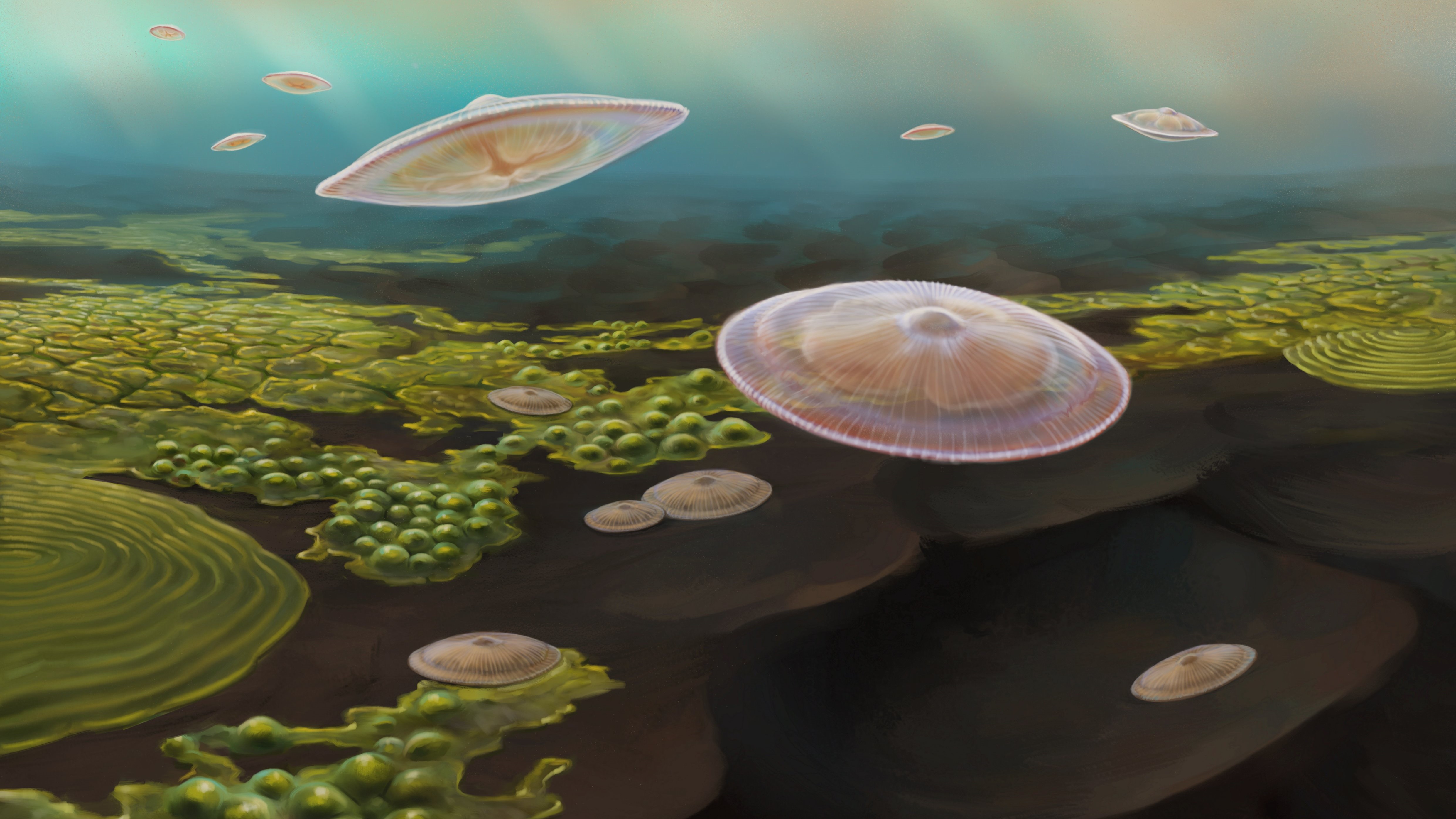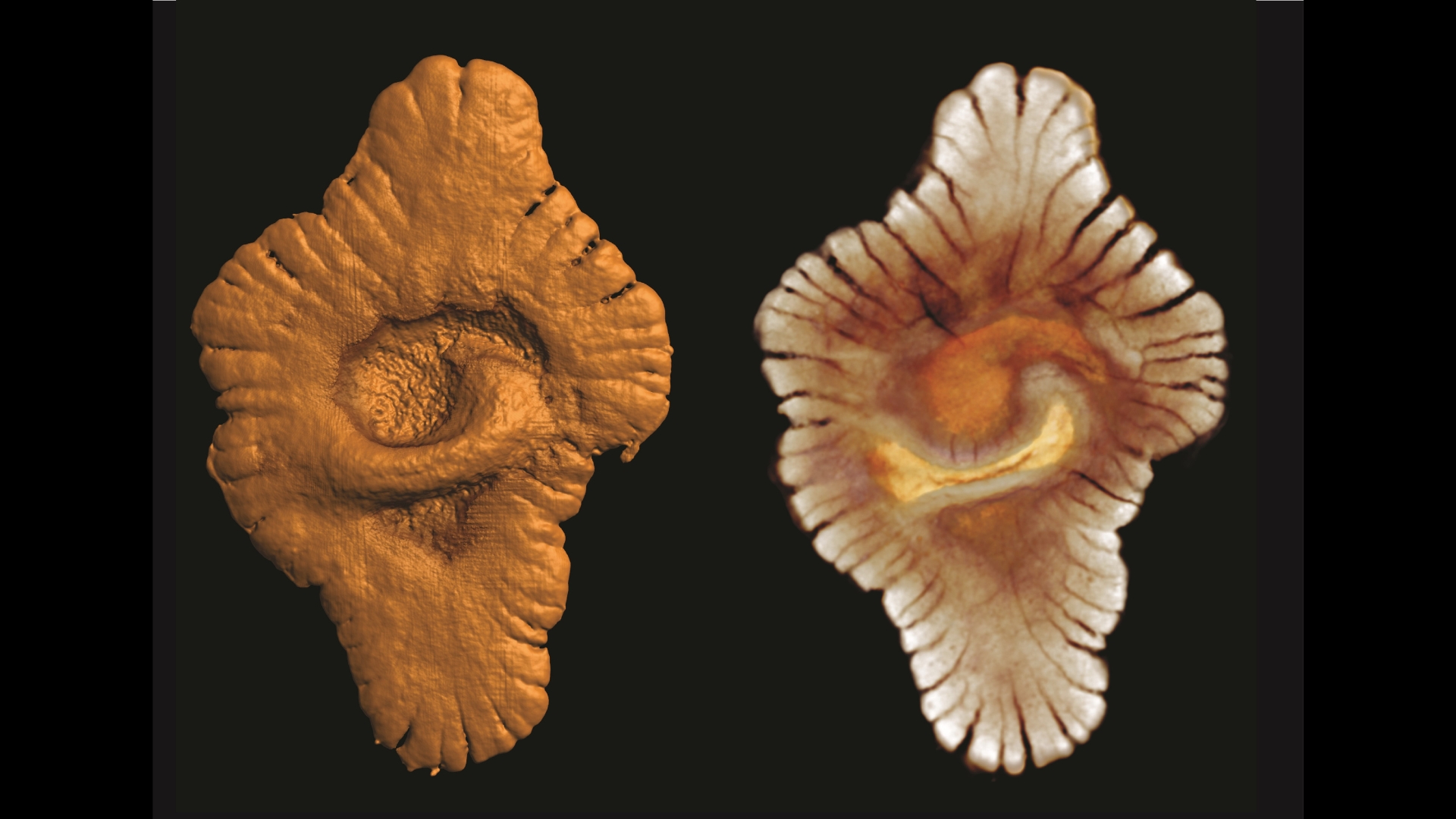Continental collision 2.1 billion years ago may have sparked '1st attempt' at complex life on Earth
Researchers have laid out the case for complex life evolving 2.1 billion years ago, but not everyone is convinced it started so early.

Complex life evolved more than 1.5 billion years earlier than scientists previously thought, a new study claims.
The findings push back the dawn of complex life from 635 million years ago to 2.1 billion years ago. However, some researchers say the theory needs more evidence.
The earliest known life forms are about 3.5 billion to 4 billion years old, from Greenland, Canada and Australia, but they were simple microscopic organisms. Life would have to wait for conditions to change before it could evolve into something more complex, like a plant or an animal.
In the new study, published in the August volume of the journal Precambrian Research, scientists documented an ancient period of underwater volcanic activity in the Francevillian Basin in what is now Gabon, Central Africa. The researchers found that this activity increased the amount of phosphorus and oxygen in the ocean, creating the ideal conditions for complex life.
"We already know that increases in marine phosphorus and seawater oxygen concentrations are linked to an episode of biological evolution around 635 million years ago," study lead author Ernest Chi Fru, a senior lecturer in Earth sciences at Cardiff University in the U.K., said in a statement. "Our study adds another, much earlier episode into the record, 2.1 billion years ago."
Related: Last Chance Lake: The unusual 'soda lake' with conditions that may have given rise to life on Earth
The fossil evidence from the Francevillian Basin is debated. Researchers first claimed that fossils from this region represented complex life in 2010, but not everyone agreed on what the fossils were or whether they were fossils at all. This new study supports the complex life interpretation.
Sign up for the Live Science daily newsletter now
Get the world’s most fascinating discoveries delivered straight to your inbox.
According to the study authors, a collision between the Congo and São Francisco cratons — ancient continents that existed more than 2 billion years ago — caused volcanic activity that set the stage for complex life, according to the study.
The researchers studied rock samples drilled from the Francevillian Basin, providing evidence of what the conditions were like. Based on the geological and chemical makeup, the team laid out a scenario in which the volcanoes cut off a section of water from the rest of the ocean, creating a shallow, nutrient-rich marine inland sea. This sea contained more phosphorus and oxygen, which enabled bacteria to thrive and created a food source for other, more complex organisms to evolve.

Chi Fru described this scenario as a "first attempt" at complex life because the conditions were restricted to that sea. The surrounding ocean wasn't so hospitable and nutrient-rich to allow complex life forms to spread — something that wouldn't change for about 1.5 billion years.
"While the first attempt failed to spread, the second went on to create the animal biodiversity we see on Earth today," Chi Fru said.
However, not all researchers are convinced by the findings.
Graham Shields, a professor of geology at University College London who was not involved in the research, said he has some reservations about the new study.
"I'm not against the idea that there were higher nutrients 2.1 billion years ago but I'm not convinced that this could lead to diversification to form complex life," Shields told BBC News.
Elias Rugen, a doctoral student researching the Precambrian carbon cycle at University College London and the London Natural History Museum, who was also not involved in the study, said that more evidence was needed to support the theories presented in the new study — but agreed with some of its findings.
"There’s nothing to say that complex biological life couldn’t have emerged and thrived as far back as 2 billion years ago," Rugen said.

Patrick Pester is the trending news writer at Live Science. His work has appeared on other science websites, such as BBC Science Focus and Scientific American. Patrick retrained as a journalist after spending his early career working in zoos and wildlife conservation. He was awarded the Master's Excellence Scholarship to study at Cardiff University where he completed a master's degree in international journalism. He also has a second master's degree in biodiversity, evolution and conservation in action from Middlesex University London. When he isn't writing news, Patrick investigates the sale of human remains.










